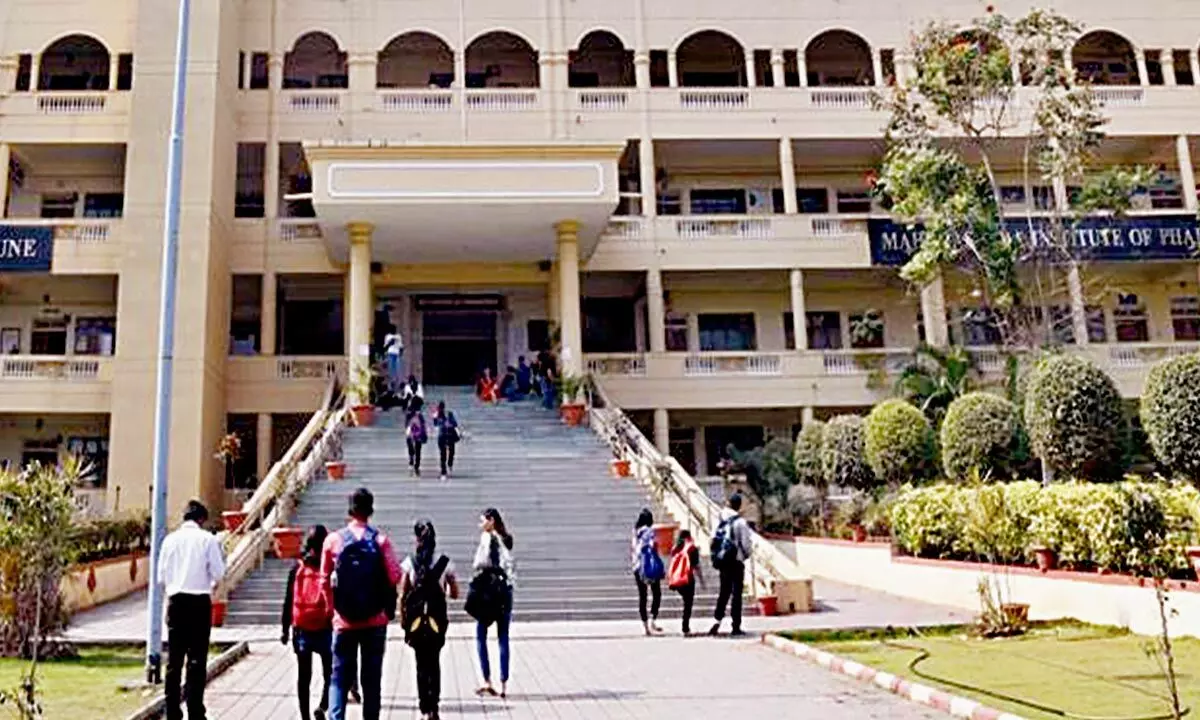PCI should devise tools to check mushrooming of pharmacy colleges
The mushrooming of pharmacy colleges is a matter of concern as it will lead to unemployment and will also adversely affect the quality of education
image for illustrative purpose

Supreme Court of India has recently dismissed an appeal filed by PCI challenging the lower court orders in favour of over 2,500 pharmacy colleges in a matter related to the five-year moratorium PCI has imposed on opening of new pharmacy colleges from the academic year 2020-21
In what might be a real setback to the Pharmacy Council of India (PCI) in its effort to curb the mushrooming of pharmacy colleges in the country, the Supreme Court of India has recently dismissed an appeal filed by the PCI challenging the lower court orders in favour of over 2,500 pharmacy colleges in a matter related to the five-year moratorium PCI has imposed on opening of new pharmacy colleges from the academic year 2020-21.
After the PCI imposed the moratorium in July 2019, more than 2,500 pharmacy institutions had filed writ petitions before the three High Courts - the High Courts of Karnataka, Delhi and Chhattisgarh - challenging the validity of the said moratorium. These high courts had issued orders in favour of the pharmacy colleges against which the PCI also filed an appeal to the Supreme Court. However, while dismissing the PCI's appeal, the apex court observed that it is necessary to impose certain restrictions so as to prevent mushrooming growth of pharmacy colleges in the country. The court further observed that merely because an institution has a right to establish an educational institution does not mean that such an application has to be allowed. The court observed that in a particular area, if there is more than sufficient number of institutions already existing, the Central Council can always take into consideration as to whether it is necessary or not to increase the number of institutions in such an area. However, a blanket prohibition on the establishment of pharmacy colleges cannot be imposed by an executive resolution.
Mushrooming of pharmacy colleges has been a major issue the country has been facing for the last about two decades. It is a fact that the number of pharmacy institutions in the country has grown by leaps and bounds since the year 1932 when the pharmacy education was first started in the county at Banaras Hindu University, with a B Pharm course. At the time of Independence, there were only five pharmacy colleges in India conducting the degree course. After Independence, it continued to grow gradually. But the beginning of the century witnessed the mushrooming of pharmacy institutions in the country, especially in states like Karnataka, Maharashtra, Tamil Nadu and the undivided Andhra Pradesh. In 2006 the number of pharmacy institutions increased to 660 with a total intake of about 75,000 students. In 2016, the figure rose to 1200 and the students intake crossed the one lakh mark. According to latest PCI data, as of now there are 1985 D Pharm and 1439 B Pharm colleges running in the country and the annual intake of students in these colleges is a whopping 2,19, 279. It was under this background, the Pharmacy Council of India (PCI), the pharmacy education regulatory body in the country, in July 2019 imposed a moratorium on opening of new pharmacy colleges for running D Pharm and B Pharm courses in the country for a period of five years beginning from the academic year 2020-2021. The PCI's decision was prompted by the opinion that there would be huge scarcity of well-paid job opportunities for qualified pharmacists in future because of oversupply of qualified pharmacists if the mushrooming of pharmacy colleges is further allowed in the country. However, this moratorium was not applicable in the north eastern region of the country where there is still shortage of pharmacy colleges.
Definitely, it was a well thought out decision taken by the Pharmacy Council. The Council at its 106th Central Council Meeting held on April 9 and 10, 2019 deliberated on the issue in threadbare and concluded that the D Pharm and B Pharm passed out students are not getting reasonably paid job opportunities in both public and in private sectors in the country. The PCI imposed the moratorium on these courses as it felt that the available workforce was enough to meet the current pharmacists-to-population needs of the country. The PCI had definitely taken a bold step which would have gone a long way to stem the rot in pharmacy education in the country. The mushrooming of pharmacy colleges is a matter of concern as it will lead to unemployment and will also adversely affect the quality of education. The unbridled growth of the sector is bound to bring in its wake a series of related problems. The issue of oversupply of qualified pharmacists might be a tip of the iceberg. There are deeper issues. There will be shortage of trained and qualified teaching faculty which will have a cascading effect on the quality of education imparted to students. Then there will be the issue of other infrastructure facilities. Considering all these factors, the PCI has taken an apt decision. It shows the national pharmacy education regulator's firm resolve to not compromise with the quality of education in the country. Now that the apex court has dismissed its appeal, the PCI has to look for other options to control the mushrooming of pharmacy colleges in the country.
(The author is freelance journalist with varied experience in different fields)

